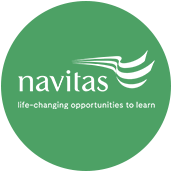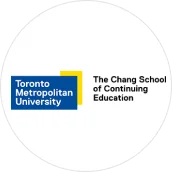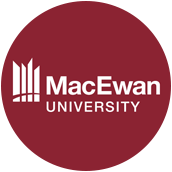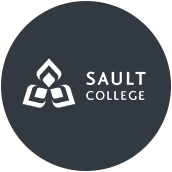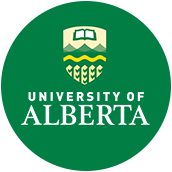A comprehensive guide to
Scholarships in Canada for International Students
Scholarships
For international students planning to study in Canada as well for Canadian scholars who are looking out for investment schemes that will facilitate tuition fee payments while pursuing studies abroad, hope is not yet gone. Canada provides scholarships for international students depending on their need to study abroad. All these scholarships are offered from undergraduate to postgraduate levels by various institutions such as universities, colleges, government agencies, and private foundations.
Hence, Canadian universities and colleges offer numerous scholarships in Canada for international students so that they may get support for their studies. In addition to this, other scholarships, grants and bursaries are also provided by the Canadian state in collaboration with both public and private agencies. First, it is advised to check eligibility and the criteria before applying for any of these scholarships.
Types of Scholarships in Canada for International Students
Here are some common types of scholarships for Indian students to study in Canada, along with their average scholarship amounts:
Entrance Scholarships: Awarded to new students upon admission to a Canadian university or college. They are typically based on academic merit and may consider other factors such as leadership potential or community involvement. Average amount: CAD 1,000 - CAD 5,000 per year.
Government Scholarships: Offered by the Canadian government through programs like the Vanier Canada Graduate Scholarships (Vanier CGS) and the Trudeau Scholarships. These scholarships are highly competitive and provide significant financial support for graduate studies. Average amount: CAD 50,000 - CAD 60,000 per year.
University-Specific Scholarships: Offered by many universities in Canada with specific eligibility criteria related to the program of study, the student's country of origin, or other factors. Average amount: CAD 2,000 - CAD 15,000 per year.
Private Foundation Scholarships: Offered by private foundations and organizations with specific eligibility criteria related to the student's field of study, research interests, or career aspirations. Average amount: CAD 5,000 - CAD 25,000 per year.
Government Scholarships in Canada
Non-Government Scholarships in Canada
University Scholarship to Study in Canada
How to Find Scholarships in Canada?
Criteria for Applying for Scholarships to Study in Canada for International Students
How to apply for scholarships to study in Canada?
Tips for Applying for Scholarships in Canada
Study in Canada
Popular Courses
Enquire Now
Not sure what you are looking for? Fill in the details to get a call-back.
Explore universities & colleges
Top Universities In Canada For Indian Students.
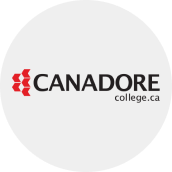
Canadore College - Stanford Mississauga Campus
Ontario, Canada • 14 Programmes
Tuition Fee : CAD 14500 - 15000 / year

Cambrian at Hanson - North York Campus
Ontario, Canada • 9 Programmes
Tuition Fee : CAD 17500 - 18000 / year
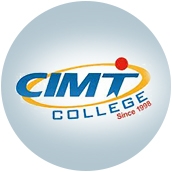
Canadian Institute of Management and Technology (CIMT) - Scarborough Campus
Ontario, Canada • 7 Programmes
Tuition Fee : CAD 11000 - 14000 / year


Georgian College - Orangeville Campus
Ontario, Canada • 7 Programmes
Tuition Fee : CAD 14000 - 14500 / year
Not sure what you qualify for?
Search for options that you are eligible for from 10s of Thousands of programs.
A-Z About admissions
A-Z of admissions, covered Pre to Post
Book a free counselling Session?
Answer a few question and receive handpicked college recommendation best for you
Study Abroud Exam
Popular English Language Proficiency Exams
Blogs and Articles
Study in Canada Blogs & Articles
Updated on • May 24,2024 04:49 PM IST • Study in Canada
Top Universities For Computer Science Courses in Canada
Updated on • May 27,2024 05:33 PM IST • Study in Canada
Increase Your PGWP Duration with 2 Years of Study in Canada
Updated on • May 22,2024 10:58 AM IST • Study in Canada
Canada Increases Off-Campus Working Hours for International Students
Updated on • May 22,2024 05:48 PM IST • Study in Canada
Student Education Loan to Study in Canada - Eligibility, Documents Required, How to Apply
Updated on • May 18,2024 03:27 PM IST • Education Loans
Teaching Courses in Canada for Indian Students
Updated on • May 17,2024 11:26 AM IST • Study in Canada
Universities in Canada for International Students
Updated on • May 14,2024 11:49 AM IST • Study in Canada
Colleges in Canada for International Students
Updated on • May 09,2024 05:17 PM IST • Colleges in Canada
Finance Courses & Universities in Canada
Updated on • May 02,2024 05:16 PM IST • Courses in Canada
Guide to Student Housing in Nova Scotia
Updated on • Mar 29,2024 10:49 AM IST • Study in Canada
Updated on • Mar 29,2024 11:47 AM IST • Study in Canada
Masters in Geology in Canada: Colleges, Courses, and Fees
Updated on • Mar 28,2024 11:32 AM IST • Study in Canada
Project Management Courses in Canada: Eligibility, Cost, Universities and more
Updated on • Mar 19,2024 03:09 PM IST • Courses in Canada
Study Loan for Canada : A Complete Guide
Updated on • Mar 18,2024 05:23 PM IST • Education Loans
Colleges in Edmonton Canada for International Students
Updated on • Mar 18,2024 04:10 PM IST • Colleges in Canada
Data Science Courses in Canada: Universities, Fees, Requirements, Scholarships, Salary and More
Updated on • Mar 02,2024 04:20 PM IST • Study in Canada
Updated on • Mar 01,2024 03:19 PM IST • Study in Canada
Master's in Management (MIM) in Canada: Universities, Eligibility, Cost, Process and more
Updated on • Mar 01,2024 12:56 PM IST • Study in Canada
MS in Sports Management in Canada: Courses, Fees and Entry Requirements
Updated on • Feb 29,2024 04:17 PM IST • Study in Canada
Master's Scholarships in Canada: Types, Top Universities, Eligibility and Process
Updated on • Feb 28,2024 11:35 AM IST • Study in Canada
Lets get your queries resolved! Session?
Got a question? Ask and discuss with 100,000+ study abroad aspirants and experts
FAQ's
FAQ's Study In Canada
How much does it cost to study in Canada?
Canada is an affordable country to study as compared to many others. You will likely need between CAD20,000 and CAD30,000 per year to cover tuition. The range is a guideline only, and the exact number will depend on your school and program. The cost of housing, food, and other living expenses will vary based on your location and personal needs.
